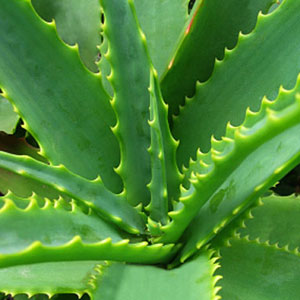
While traditional herbal remedies from other parts of the world, the East in particular, have become widely publicised and are regularly utilised, African herbs are still surrounded by a certain amount of controversy.
Attributable perhaps to a lack of formalised study and public education, the debate does not appear to have deterred the millions who make use of these remedies on a daily basis, for ailments ranging from simple fatigue to life-threatening illnesses.
The vast amount of anecdotal evidence surrounding the efficacy of African remedies does beg the question – when will formalised study begin?
Aloe Ferox
Aloe Ferox, indigenous to South Africa and prolific in the eastern parts of the country, is one natural ingredient that appears to have bridged the divide between conventional and traditional remedies.
Extracts from various parts of the plant are included in laxatives and treatments for arthritis, eczema, conjunctivitis, hypertension and stress. It is also used in cosmetics, and livestock medicines. The versatility of the plant cannot be disputed.
Aloe appears to have particular indication as an anti-inflammatory and immuno-modulator, which, considering the illnesses that are currently threatening the country, certainly accounts for the plant’s popularity.
African potato
Another reputed immune-booster is the somewhat infamous African potato, commonly known as Inkomfe.
Regularly featured in the media as the focus of a debate regarding the Department of Health’s position on traditional remedies, the unassuming tuber has become the representative of all traditional remedies.
Customarily used as a treatment for complaints of the urinary and reproductive systems, including prostate hypertrophy and testicular tumours, it is also prescribed as a tonic and mood enhancer.
Cancer bush
Described as one of the most valuable of Southern Africa’s medicinal plants, the properties of cancer bush were taught originally by the Khoi and San.
Labelled Sutherlandia Frutescens by the scientific community, tinctures, infusions and decoctions of its leaves and stems have been used for generations for a veritable host of ailments not limited to poor appetite, dysentery, diabetes, influenza, kidney and liver conditions, heart failure and anxiety.
Several highly active compounds including canavine, pinitol and the amino acid GABA occur in high quantities in Sutherlandia, suggesting that there is indeed a scientific basis for the use of the plant in treatment of chronic illnesses.
Buchu
The San and Khoi were also fond of buchu for both cosmetic and antibiotic applications. These practises were later adopted by the migrant Dutch.
Stomach ailments and kidney and urinary tract diseases were most commonly treated with buchu, which is now also used as a diuretic.
Boegoe-brandewyn, a potent combination of the plant with brandy is remembered, thanks to the Dutch, as a popular Cape remedy for stomach afflictions of every description. Occasionally, buchu is applied externally to wounds and bruises.
Wild dagga
Numerous traditional uses have been attributed to Leonotis, or wild dagga. Interestingly, this includes being smoked for the relief of epilepsy.
There have been some indications that it was smoked as an alternative to marijuana, although this is doubtful as the plant is very mildly narcotic.
Externally, decoctions are applied for various skin complaints and muscle pain. Internally, wild dagga is a commonly used for chest ailments, including bronchitis, influenza and coughs.
Relief for headaches, high blood pressure, asthma and viral hepatitis have also been reported.
In conclusion
Should scientific evidence confirm the efficacy of these plants, it is possible that in South African gardens, grasslands and mountains lies the cure to many of the severe illnesses plaguing modern society locally and abroad.
Widely available, able to be farmed in a sustainable manner that creates jobs as well as cures, this could well be our greatest and most valuable natural resource.
Source: Nature’s Health Products




 Publications
Publications
 Partners
Partners













